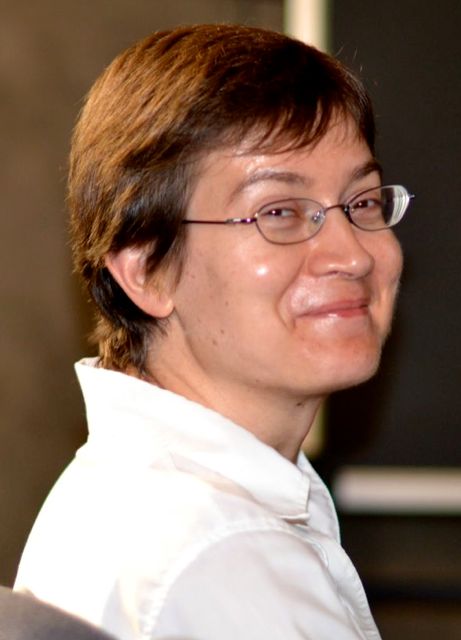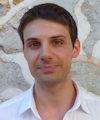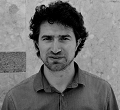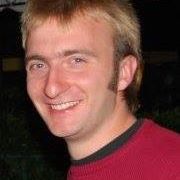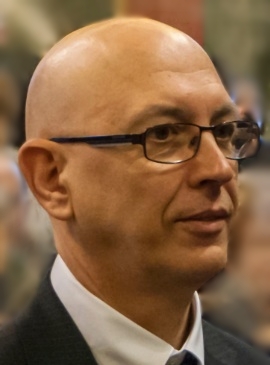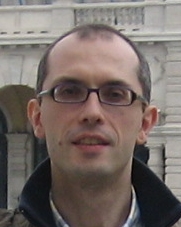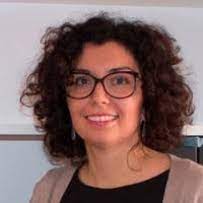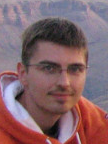Studying at the University of Verona
Here you can find information on the organisational aspects of the Programme, lecture timetables, learning activities and useful contact details for your time at the University, from enrolment to graduation.
Academic calendar
The academic calendar shows the deadlines and scheduled events that are relevant to students, teaching and technical-administrative staff of the University. Public holidays and University closures are also indicated. The academic year normally begins on 1 October each year and ends on 30 September of the following year.
Course calendar
The Academic Calendar sets out the degree programme lecture and exam timetables, as well as the relevant university closure dates..
| Period | From | To |
|---|---|---|
| I semestre | Oct 1, 2018 | Jan 31, 2019 |
| II semestre | Mar 4, 2019 | Jun 14, 2019 |
| Session | From | To |
|---|---|---|
| Sessione invernale d'esame | Feb 1, 2019 | Feb 28, 2019 |
| Sessione estiva d'esame | Jun 17, 2019 | Jul 31, 2019 |
| Sessione autunnale d'esame | Sep 2, 2019 | Sep 30, 2019 |
| Session | From | To |
|---|---|---|
| Sessione Estiva | Jul 18, 2019 | Jul 18, 2019 |
| Sessione Autunnale | Oct 17, 2019 | Oct 17, 2019 |
| Sessione Invernale | Mar 18, 2020 | Mar 18, 2020 |
| Period | From | To |
|---|---|---|
| Sospensione dell'attività didattica | Nov 2, 2018 | Nov 3, 2018 |
| Vacanze di Natale | Dec 24, 2018 | Jan 6, 2019 |
| Vacanze di Pasqua | Apr 19, 2019 | Apr 28, 2019 |
| Festa del Santo Patrono | May 21, 2019 | May 21, 2019 |
| Vacanze estive | Aug 5, 2019 | Aug 18, 2019 |
Exam calendar
Exam dates and rounds are managed by the relevant Science and Engineering Teaching and Student Services Unit.
To view all the exam sessions available, please use the Exam dashboard on ESSE3.
If you forgot your login details or have problems logging in, please contact the relevant IT HelpDesk, or check the login details recovery web page.
Should you have any doubts or questions, please check the Enrollment FAQs
Academic staff
 maurizio.boscaini@univr.it
maurizio.boscaini@univr.it
 federico.busato@univr.it
federico.busato@univr.it
 mila.dallapreda@univr.it
mila.dallapreda@univr.it
Study Plan
The Study Plan includes all modules, teaching and learning activities that each student will need to undertake during their time at the University.
Please select your Study Plan based on your enrollment year.
1° Year
| Modules | Credits | TAF | SSD |
|---|
2° Year activated in the A.Y. 2019/2020
| Modules | Credits | TAF | SSD |
|---|
| Modules | Credits | TAF | SSD |
|---|
| Modules | Credits | TAF | SSD |
|---|
| Modules | Credits | TAF | SSD |
|---|
2 modules among the followingLegend | Type of training activity (TTA)
TAF (Type of Educational Activity) All courses and activities are classified into different types of educational activities, indicated by a letter.
Advanced Data Base Systems (2018/2019)
Teaching code
4S001162
Credits
6
Language
Italian
Scientific Disciplinary Sector (SSD)
INF/01 - INFORMATICS
The teaching is organized as follows:
Teoria
Credits
5
Period
I semestre
Academic staff
Alberto Belussi
Laboratorio
Credits
1
Period
I semestre
Academic staff
Alberto Belussi
Learning outcomes
Knowledge and understanding:
The goal of this course is to provide the student with the knowledge and understanding of the theoretical, methodological and technological main concepts related to database systems and their use for the management of biomedical and bioinformatics data and information.
Applying knowledge and understanding:
The student will be able to a) define through a formal model the structure and the features of complex data collections; b) specify queries on complex data through different query languages; c) understand the advanced requirements for the management of biomedical information.
Making judgements:
The student will acquire the capability of autonomously evaluate different design options for complex systems, and of autonomously propose effective solutions in the application domain related to biomedicine and bioinformatics.
Communication:
The student will be also able to interact with different stakeholders in multidisciplinary teams, having different skills and backgrounds in biomedicine and bioinformatics.
Lifelong learning skills:
The student will acquire the capability of learning new methodologies and technologies related to data management and applying them in the biomedical/bioinformatics domain.
Program
------------------------
MM: Biomedical and bioinformatic data management
------------------------
* Temporal databases: advanced topics * Temporal Clinical Databases * Querying biomedical XML data: Xpath and Xquery * Electronic Medical Record systems * Information retrieval techniques (a survey)
------------------------
MM: Fundamentals of database systems Teoria
------------------------
- The relational data model: relational calculus, functional dependencies, normal forms and decompositions. - Conceptual data modeling in UML - Object and object-relational databases: data model and query language of SQL 3, UML for modeling object oriented databases, mapping towards SLQ 3. - Spatio-Temporal databases: basic concepts, data models, query languages (TSQL2, Simple Feature Specification for SQL OGC). - Big data systems: Hadoop
------------------------
MM: Fundamentals of database systems Lab.
------------------------
- training on SQL 3 with postgreSQL - training on spatio-temporal queries with PostGIS
Bibliography
| Activity | Author | Title | Publishing house | Year | ISBN | Notes |
|---|---|---|---|---|---|---|
| Teoria | R. Elmasri, S. B. Navathe | Fundamentals of Database Systems (Edizione 1) | Addison-Wesley | 1994 | 0805317481 | |
| Teoria | M. N. DeMers | Fundamentals of Geographic Information Systems (Edizione 1) | Jhon Wiley & sons, Inc. | 1997 | 0471142840 | |
| Teoria | M. F. Worboys | GIS: A Computing Perspective (Edizione 1) | Taylor & Francis | 1995 | 0748400656 | |
| Teoria | J. D. Ullman | Principles of Database and Knowledge-base Systems | Computer Science Press | |||
| Teoria | P. Rigaux, M. Scholl and A. Voisard | Spatial Databases with Application to GIS | Morgan Kaufmann | |||
| Teoria | C. Combi, E. Keravnou-Papailiou, Y. Shahar | Temporal Information Systems in Medicine (Edizione 1) | Springer | 2010 | 978-1-4419-6542-4 | |
| Teoria | R. G. G. Cattell | The Object Data Standard: ODMG 3.0 | Morgan Kaufmann | 2000 | 1-55860-64 |
Examination Methods
------------------------
MM: Biomedical and bioinformatic data management
------------------------
The exam consists of an oral examinations with exercises and questions related to the different parts of the module, with the goal of verifying whether the student is aware of the theoretical content of the module and is able to apply it in real-world contexts.
------------------------
MM: Fundamentals of database systems Teoria
------------------------
The exam for this module consists of a written test of about 2.5 hours containing: (i) some exercises requiring the specification of queries and database design using one of the database models included in the program and (ii) open questions about the theory. During the semester, in a date to be decided with the students, an intermediate test will be proposed on the part of the program regarding: the relational calculus, the functional dependencies and the normalization.
------------------------
MM: Fundamentals of database systems Lab.
------------------------
See the description of the theory module
Type D and Type F activities
Documents and news
-
 PIANO DIDATTICO LM-18 LM-32
(octet-stream, it, 17 KB, 21/09/18)
PIANO DIDATTICO LM-18 LM-32
(octet-stream, it, 17 KB, 21/09/18)
Modules not yet included
Career prospects
Module/Programme news
News for students
There you will find information, resources and services useful during your time at the University (Student’s exam record, your study plan on ESSE3, Distance Learning courses, university email account, office forms, administrative procedures, etc.). You can log into MyUnivr with your GIA login details: only in this way will you be able to receive notification of all the notices from your teachers and your secretariat via email and soon also via the Univr app.
Graduation
Deadlines and administrative fulfilments
For deadlines, administrative fulfilments and notices on graduation sessions, please refer to the Graduation Sessions - Science and Engineering service.
Need to activate a thesis internship
For thesis-related internships, it is not always necessary to activate an internship through the Internship Office. For further information, please consult the dedicated document, which can be found in the 'Documents' section of the Internships and work orientation - Science e Engineering service.
Final examination regulations
List of theses and work experience proposals
Attendance
As stated in the Teaching Regulations for the A.Y. 2022/2023, attendance at the course of study is not mandatory.
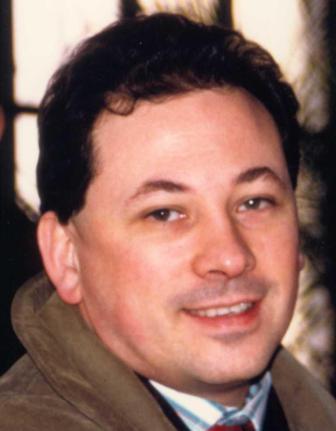
 +39 045 802 7980
+39 045 802 7980

